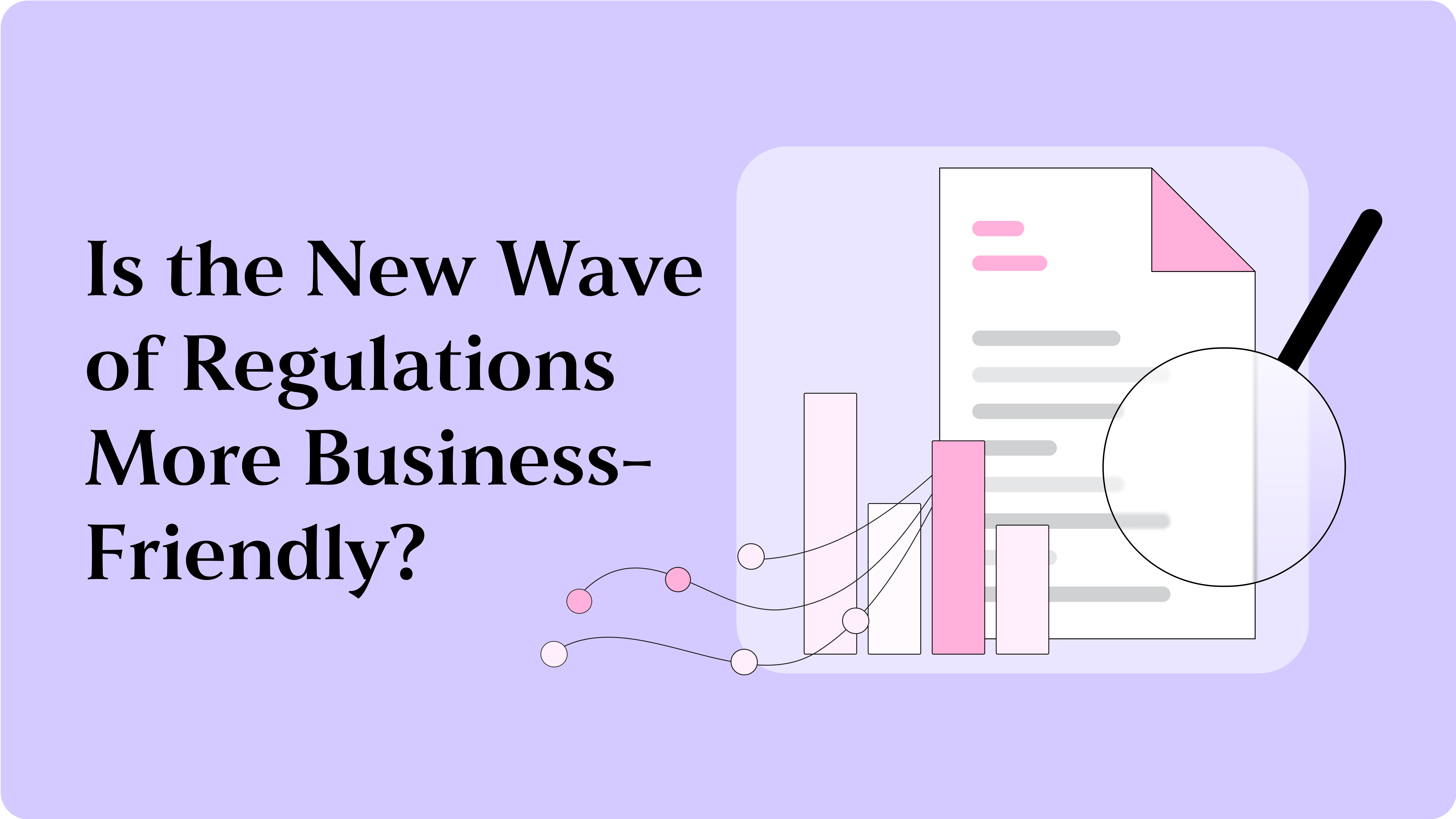Is the New Wave of Regulations More Business-Friendly?


For years, privacy regulation was cast as the enemy of business innovation. The GDPR, the CCPA, and a wave of similar laws worldwide have set strict standards and imposed heavy penalties, forcing companies to rethink their entire approach to personal data. Now, a shift is emerging. Recent regulations appear more about enabling innovation while still holding organizations accountable. But does this mean businesses can finally breathe a sigh of relief? Let’s take a closer look.
The first wave: All beginnings are hard
For decades, personal data was collected, shared, and sold with little consequence. Companies operated in a near-lawless digital environment, while individuals had almost no say in how their information was used. The arrival of GDPR, CCPA, and other early laws changed that.
Regulators wanted to send a clear message: privacy is a right, and companies must respect it. The public also needed to learn how to exercise new rights: requesting access, demanding deletion, and questioning consent practices. It was a massive cultural and operational shift, one that demanded strict boundaries to reset the balance of power.
Learning from the consequences
Today, the picture looks different. Many organizations have established privacy frameworks, consumers are more familiar with their rights, as 36% of internet users have already submitted DSARs in 2024, and regulators have seen what happens when the rules bite too hard.
Strict enforcement has sometimes led to business and innovation stalling in critical sectors. Almost two-thirds of government organizations, for example, state that data privacy and security issues are the main barriers preventing them from adopting digital solutions. The point of regulation has never been to stop the commercial use of data altogether, but to make sure data is used responsibly and transparently, so that innovation can flourish without undermining trust.
Signs of a more business-friendly wave
The current wave of laws reflects this learning. While still protective of rights, they increasingly show a willingness to let businesses operate within clearer, more flexible boundaries. A few examples stand out:
- UK Data (Use and Access) Act: Among other things, this Act extends the open banking model into new sectors like utilities, transport, and real estate. By allowing individuals to securely share their data with trusted third parties through Smart Data Schemes, it enables innovation in new and vital areas.
- EU Artificial Intelligence Act: The AI Act creates a risk-based framework for AI development that categorizes risks and sets requirements accordingly. This provides predictability for developers, allowing them to harness the power of AI. The law also introduces sandboxes for testing and offers incentives for trustworthy AI innovation.
- U.S. State-level privacy laws: Iowa’s Consumer Data Protection Act and Texas’s Data Privacy and Security Act both take a lighter approach. They impose fewer consumer rights than California’s laws and include cure periods for noncompliance. These frameworks still establish protections but lower the burden for businesses, particularly smaller players.
Why we’re seeing this shift
Several forces explain this regulatory turn:
- The first wave did its job: GDPR, CCPA, and others forced organizations to treat privacy seriously. Companies built compliance systems, and consumers learned how to use their rights. With that groundwork laid, regulators can now focus on refinement.
- Avoiding the innovation chokehold: Heavy-handed rules exposed weaknesses: startups folding under compliance costs, global companies withdrawing services from smaller markets, and slowed digital development. Regulators want to avoid repeating these mistakes.
- Global tech race pressure: Nations recognize that AI, biotech, and other data-driven industries will shape the future of power. Excessive restrictions could hinder their progress while other regions advance.
- Maturing regulatory approach: Regulators are moving from reactive, one-size-fits-all laws to risk-based frameworks. They’re learning to calibrate oversight to context instead of blanket bans.
- Demand from both sides: Businesses push for workability, while citizens still want digital convenience. Regulators now aim to protect rights while letting innovation deliver better services like healthcare analytics or smarter digital platforms.
What it means for companies
Business-friendly regulation doesn’t mean businesses can relax. If anything, it raises the bar for responsibility. The new wave emphasizes risk and values-based governance. Companies must assess impacts, demonstrate accountability, and show restraint in data use. In return, they receive clearer rules and more predictable frameworks, which enable them to innovate with confidence.
This is why organizations should resist the temptation to be reactive. Building a strong, regulation-agnostic privacy strategy remains the safest bet. The rules may soften in places, but the direction is clear: responsible, transparent, and accountable use of data is the new norm. Technology can help companies get there, and platforms like Mine provide a single source of truth for privacy and security operations.
The new wave of regulations does look more business-friendly, but it is not a free pass. Companies that build proactive, adaptable strategies and use automation and AI-based technologies will not only stay compliant but also gain the confidence to innovate in a world where data is still a crucial business resource.